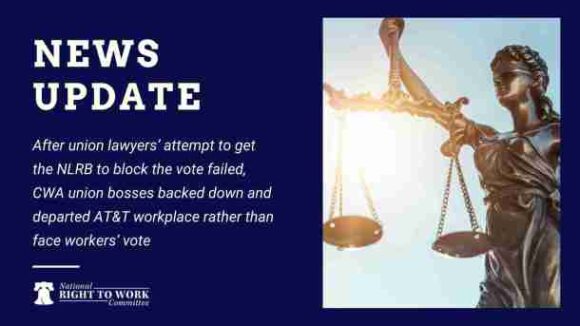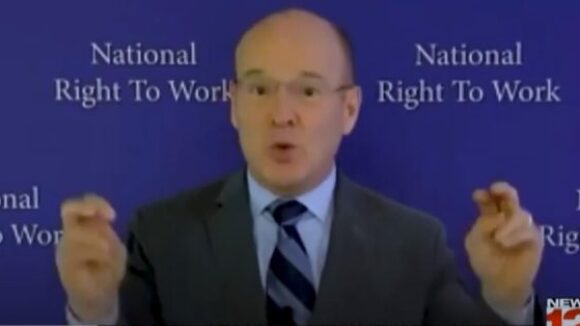Miami Teacher Union (UTD) on Brink of Extinction
This winter top bosses of the Miami-based United Teachers of Dade (UTD) are indeed in danger of being thrown to the curb.
If public officials legally empower union bosses to represent employees who don’t want a union as well as those who do, the law “must” also empower them to force the unwilling employees to pay union dues or fees. Otherwise, such employees will get what forced-unionism supporters call a “free ride.”
As the recent Detroit News editorial linked below explains, what’s just been said here could be the beginning of a good argument for why legislators in Michigan and many other states should abolish “exclusive” union bargaining in the public sector. But the supposed problem of “free riders” now being cited by teacher and other government union bosses who are eager to repeal Michigan’s fledgling Right to Work statute is “scarcely coherent” as a justification for forcing union nonmembers to support financially a monopolistic union, as the late Clyde Summers explained in a 1995 book review for the Comparative Labor Law Journal.
The News editors suggest, quite plausibly, that even if it were the case that all workers who resisted joining a union economically benefited from unionization, the fact that such workers are legally prohibited in Michigan and many other states from negotiating their own contract would still make it correct to refer to them as “captive passenger,” and not “free riders.”
But in any case the hypothesis that all employees who are unionized benefit economically thereby can easily be disproved.
Summers was a Pennsylvania law professor who personally supported monopoly unionism and forced dues. But, he admitted, the attempted justification now being made by union bosses like David Hecker, the president of the Michigan affiliate of the American Federation of Teachers (AFT/AFL-CIO) union, fails, first of all, because under monopoly bargaining workers who don’t want a union are “often actually made worse off” than they were before.
Summers approvingly quoted this observation from the book under review, then tersely summarized the compelling evidence for it:
Full-timers may bargain to limit the jobs of part-timers, seniority provisions may disadvantage younger workers, and wage increases of the low skilled may be at the expense of the highly skilled.
An excellent illustration of how monopoly bargaining benefits some “represented” employees at the expense of others that is especially true with regard to teacher unions concerns how pension benefits are structured.
A study prepared for the Manhattan Institute (MI) by Marcus Winters and Josh McGee and issued a couple of months ago explained why union-negotiated pension benefits are a bad deal for most teachers.
Pension systems that are favored by the teacher union hierarchy and, largely for that reason, standard in K-12 public school systems practically throughout the country, enable teachers to “accumulate relatively little retirement wealth for their first couple of decades,” as Winters and McGee show. And this means the vast majority of teachers accrue only very small pensions over the course of their entire teaching career, because 70% of teachers leave the profession before they reach 20 years of service.
On the other hand, teachers who remain in the profession for 30 years or more receive pensions that are extraordinarily generous by comparison with those obtained by private-sector employees whose cash salaries are comparable.
The fact that most teachers do not spend the vast majority of their working years in education, despite the fact that teacher union officials have used their “exclusive” bargaining clout to establish a pension system that gives teachers a financial incentive to work in K-12 schools for three decades or more, strongly suggests that generous pensions are not greatly valued by teachers. To attract and retain the best teachers, states and school districts would be well advised to allocate a higher share of teacher compensation to salaries, especially the salaries earned by teachers during their first decade or two on the job.
At least in Right to Work states like Michigan, when union officials steer teacher compensation out of salaries for relatively inexperienced educators and into pension funds from which most teachers will never benefit much, the teachers who are hurt can protest by refusing to join or pay dues or fees to the union. In forced-unionism states, however, younger teachers who don’t intend to teach until they retire and older teachers who didn’t enter the profession until they were in their forties have to bankroll the same union that is hurting them.
As the News editors suggest, Michigan could address the real injustice of the current system by allowing teachers, many of whom have very good reason to think they are economically harmed by Big Labor bargaining, to escape from it. The last thing Michigan should do is compound the problem by restoring union bosses’ forced-dues privileges.

This winter top bosses of the Miami-based United Teachers of Dade (UTD) are indeed in danger of being thrown to the curb.

After union lawyers’ attempt to get the NLRB to block the vote failed, CWA union bosses backed down and departed AT&T workplace rather than face workers’ vote

Mark Mix Voices His Concerns On Tennessee’s WDEF News 12 as Big Labor Prepares for a Card Check Election at the Chattanooga Volkswagen Plant.